
Different Approaches Applied to Environment and to Agriculture
Célia Antunes (University of Évora – ICT, ICAAM)
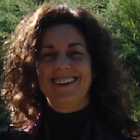
Assistant Professor in the Department of Chemistry
PhD in Biochemistry by the Faculty of Sciences and Technology of the University of Coimbra in 2005. Researcher in the “Atmosphere, Instrumentation and Climate Group (ICT-UÉ)”; Thematic Line “Palinology and Health”.
Research Areas: Life Sciences; Biochemistry applied to the Environment and Health. Interests: Study of bioaerosols and their impact on health; Environment and health interactions; Biochemical quality of air, in particular airborne allergens, and their impacts on human health. In particular: (i) pollen and allergen monitoring in the air; (ii) the molecular basis of allergy to pollen and its allergenicity; iii) Interactions of allergens with the mucosa and immune cells; iv) Development of methods to identify allergens.
Ricardo Boavida Ferreira (University of Lisbon – ISA)
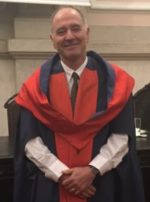
Full Professor at the Instituto Superior de Agronomia from the University of Lisbon.
Motto: basic research to solve everyday problems.
Research interests: with a very wide range of collaborations, strong multidisciplinary research allowing to take research from the lab bench to plate, clinic or farm.
Research areas: transcript-, proteo- and metabolomics in cell-cell and cell-molecule interactions, involved in plant- and human-pathogen interactions and human health and nutrition.
Biological materials: from bacteria to fungi, plants to man, with a special focus on fungal pathogens.
Publications and Patents: over 115 published scientific articles (JCR), inventor in many international patents, either granted (over 40 international patents) or under examination (7 patent families).
Experience on research supervision, coordination of research projects and intellectual property issues.
Olive Grove, Vineyard and Other Cultures
Maria do Rosário Félix (University of Évora – ICAAM)
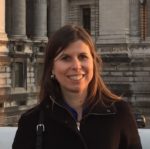
Assistant Professor in the Department of Crop Sciences
PhD in Agricultural Sciences concerning olive viruses (2008). Working for about 25 years on olive pathogens, with main focus in olive affecting viruses, characterizing these pathogens molecularly, designing and improving molecular diagnostic tests such as conventional and multiplex RT-PCR, RT-qPCR, studying the relationships between viruses and their vectors, and the use of virus as a tool for plant protection. Participation in a dozen of R&D projects all concerning olive and its sanitary breeding and at this moment, she is Management Committee Member of the COST Action FA1407 ‘Application of next generation sequencing for the study and diagnosis of plant viral diseases in agriculture’. She has established a collaboration protocol with an international company for the production of specific antibodies for olive virus diagnostic through serological tests. She has published, since 2004, 27 peer-reviewed papers, and 2 book chapters concerning olive viruses.
Marco Richter Gomes da Silva (Universidade Nova de Lisboa – LAQV-requimte)
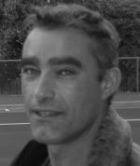
Assistant Professor with Habilitation in the Department of Chemistry
Coordinator of the PhD program in Food Science, a new program in collaboration between FCT/NOVA and University of Évora.
The field of research focuses on the development of more accurate, less time-consuming, more efficient and more reliable analytical methods based GC, GC/MS, GCxGC and HPLC, for the identification and quantification of organic compounds in complex matrices such as food, water and biological samples. Several sample preparation methodologies are used, such as LLE, SPE and MIPs as well as SPME.
Mediterranean Agro-Silvo-Pastoral Systems
João Serrano (University of Évora – ICAAM)
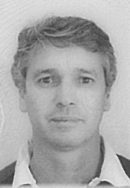
Assistant Professor with Habilitation in the Department of Rural Engineering
Zootechnical Engineer (1988) with Pedagogical Aptitude Tests and Scientific Capability in “Agricultural Tractor Information Systems” (1994) (1994), PhD in Agricultural Sciences (Agricultural Mechanization) (2002), Master’s Degree in Sports Training (2010) and Habilitation in Precision Agriculture (2015). Collaborator of the Department of Sport and Health of the University of Évora since 2014 as responsible for the specialization in Futsal.
Research: Since 2004 he is responsible for several research projects related to the use and demonstration of technologies for monitoring the assembled ecosystem.
Publications: Published more than 100 scientific articles in the areas of Agricultural Mechanization (optimization and design of the tractor-tool set), Precision Agriculture (variable fertilizer application technology, tools for surveying soil and crop spatial variability, global evaluation of the ecosystem) and sports sciences (injuries in Futsal, sports career of Futsal players in Portugal, effect of relative age in Futsal, perspectives of coaches on sports performance factors).
José Mira Potes (Polytechnic Institute of Santarém – Agrarian School)
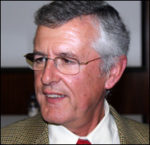
President of the Polytechnic Institute of Santarém
Specialist in Agro-Silvo-Pastoral Systems by the Polytechnic Institute of Santarém, with a Master’s Degree in Animal Production by the Technical University of Lisbon, Superior School of Veterinary Medicine and Degree in Zootechnical Engineering by the University of Évora. Current Director of the Agrarian School of Santarém (ESAS) since November 2014 and ESAS Coordinating Professor since February 2009. Vice-President of the Technical and Scientific Board (CTC) and Coordinator of the scientific area of Agricultural Production of the Department of Agrarian Sciences and Environment of ESAS.
Main scientific research area: Agro-Silvo-Pastoral Systems, Pastures and Forages.
Other scientific areas of interest: Extensive Livestock Production, Mediterranean Agricultural Systems.
Biodiversity and Ecosystems Functioning
António Mira (University of Évora – CIBIO-InBIO, ICAAM)
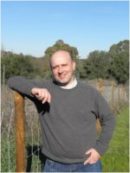
Assistant Professor in the Department of Biology
PhD degree in Biology, on Ecology and Biosystematics, by the University of Lisbon since 1999. Member of the Évora nucleus of the Centre for Research on Biodiversity and Genetic Resources (CIBIO-UE) and collaborator of the Institute of Agrarian and Mediterranean Environmental Sciences (ICAAM). Founding member and the first Director of the Master’s Degree in Conservation Biology at the University of Évora between 2003 and 2006. Currently in charge of the University’s Conservation Biology Unit.
The main current lines of research are: (i) Ecology of linear infrastructures; (ii) Management and conservation of fauna, particularly mammals; (iii) Applied Population Ecology, particularly the effect of intensifying agriculture and pastoralism on metapopulational dynamics and implications for long-term population persistence; (iv) Assessment of the impact of landscape humanization on biodiversity and ecosystem services.
Francisco Moreira (Universidade do Porto– CIBIO-InBIO)
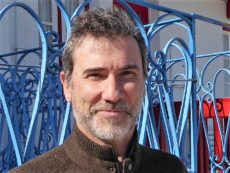
Principal Investigator in CIBIO-InBIO (Research Network on Biodiversity and Evolutionary Biology), University of Porto and University of Lisbon.
Coordinator of the research group on “Biodiversity in agricultural and forest ecosystems” and of the REN Biodiversity Chair. Member of the Board of the Society for Conservation Biology – European Section. Its preferred research themes include links between agricultural and forest management and biodiversity, fire ecology and the impact of anthropogenic infrastructures on biodiversity.
Animal Production and Health
Rita Payan Carreira (University of Évora, CECAV)
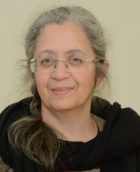
Full Professor of the Department of Veterinary Medicine
Graduated in Veterinary Medicine from ESMV-UTL, Lisbon in 1985, and UTAD professor between 2006 and 2018. PhD in Veterinary Sciences and later Aggregation, in the Reproductive Medicine and Reproduction Medicine area.
Research focusing on the area of animal reproduction with main interest in the molecular mechanisms that modulate uterine function and in particular embryo-maternal interaction. Other areas of interest are the strategies for developing critical thinking and clinical skills in university education.
Conceição Peleteiro (University of Lisbon-FMV, CIISA)
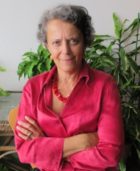
Full Professor of the Department of Animal Health
Graduation in Veterinary Medicine in 1976, Escola Superior de Medicina Veterinária (presently Faculdade de Medicina Veterinária), Universidade Técnica, Lisbon. Master of Sciences in Aquatic Veterinary Studies in 1981, University of Stirling, United Kingdom. PhD in 1987, University of Stirling, United Kingdom. Since 1976, member of the teaching staff of the Faculty of Veterinary Medicine, in Lisbon, as Assistant (1976-1987), Auxiliary Professor (1987-1990), Associate Professor (1990-1996) and Full Professor (1996-present days). Member of the European College of Veterinary Pathology, since 1996. Vice-Rector of the Technical University of Lisbon, from 1996 to 1999 and in 2011. Vice-President of the Foundation for Science and Technology, main public Portuguese agency for research and technology funding, from February 2003 to December 2004. Responsible for the pathology diagnosis service of the Faculdade de Medicina Veterinária, including necropsies, histopathological and citological diagnosis. These responsabilities account for a total of appx. 2000 histopathological and 1000 cytological analysis per year. Large experience in cytological diagnosis.
